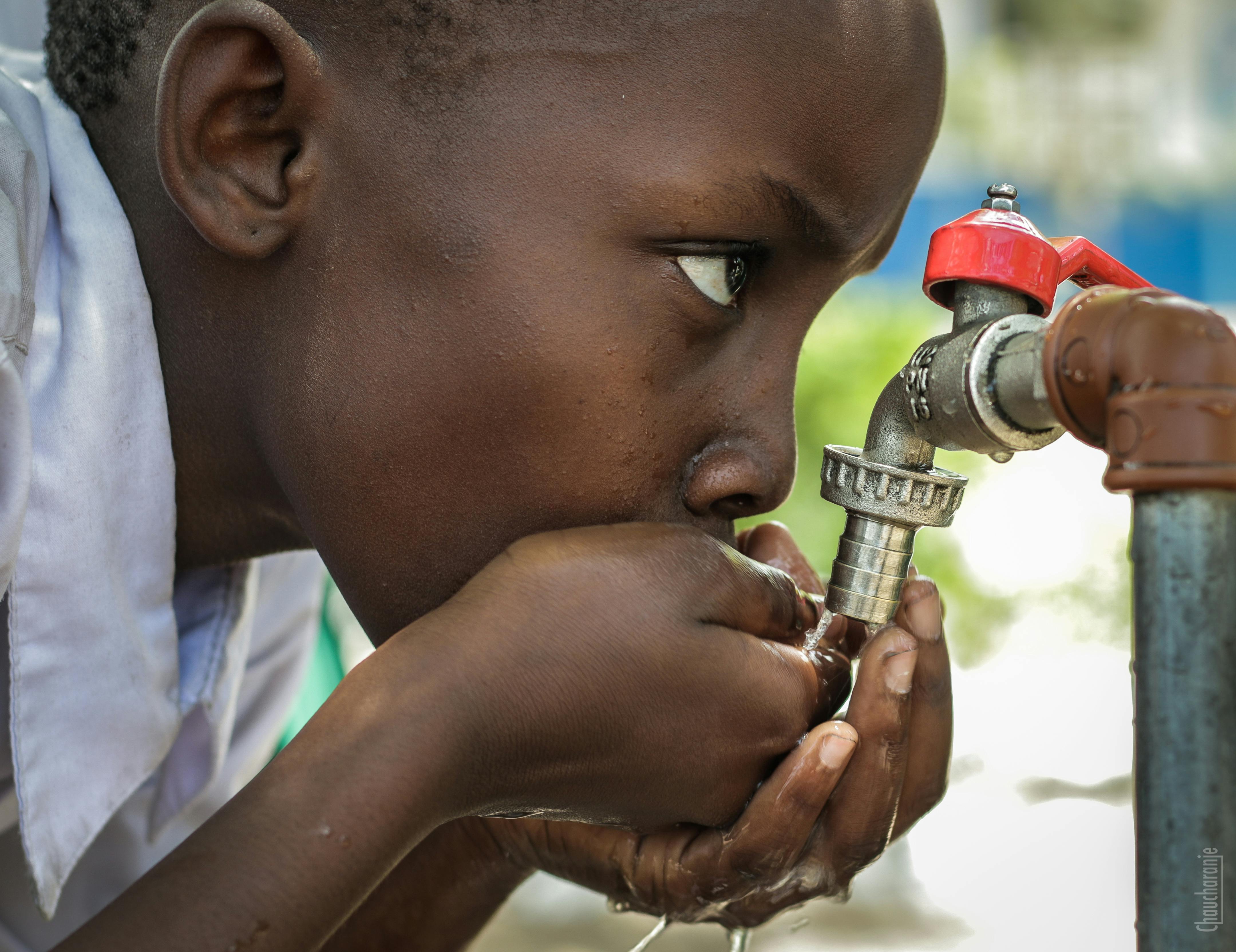Drinking water and distilled water are both popular sources of hydration, but they are very different from one another. Drinking water is sourced from natural sources, such as rivers, lakes, and wells. It can contain various minerals and other substances, depending on the source. Distilled water is created by boiling drinking water and then collecting the resulting steam. During this process, any minerals or other substances found in the original source are removed.Drinking water is water that is safe to consume and is intended for human consumption. It includes tap water, bottled water, and other packaged or processed waters that are labeled as safe for drinking.
What Is Distilled Water?
Distilled water is water that has been boiled and then condensed back into a liquid. It is also known as “purified” or “demineralized” water, as it has had many of its minerals removed. This process removes impurities and contaminants, such as bacteria, parasites, heavy metals, and other chemicals. Distillation also removes chlorine and other volatile organic compounds (VOCs) from the water. The result is a clear, odorless liquid that can be used for drinking, cooking, and other household uses.
Distilled water is often used in medical settings to ensure purity of the water used in treatments or for hydration needs. It is also used in aquariums to ensure the safety of fish and other aquatic species. Distilled water can also be used for car batteries to protect them from corrosion. In addition to these uses, distilled water is often recommended for steam irons and humidifiers to prevent mineral buildup in these appliances.
Although distilled water has had many of its minerals removed during the distillation process, it does contain trace amounts of minerals that are left behind during dist
Producing Drinking Water
Drinking water is produced using a variety of processes, such as filtration, distillation, reverse osmosis, and desalination. Filtration is the most common method used to produce drinking water, and involves passing water through a physical filter to remove particles and contaminants. Distillation involves boiling water and then condensing the steam into a separate container. This process removes bacteria, salts, and other contaminants from the water. Reverse osmosis uses a membrane to remove contaminants from the drinking water by forcing it through a semi-permeable filter at high pressure. Desalination is used to remove salt from seawater or brackish groundwater. This process typically involves heating the water until it evaporates and then condensing it in another container. By employing these processes, drinking water can be made safe for human consumption.
Once the drinking water has been produced, it needs to be treated in order to make sure that it meets quality standards for safety and taste. Treatment typically involves adding chemicals such as chlorine or fluoride to kill bacteria or algae that may be present in the water supply. Additional treatment processes may also be employed depending
How Distilled Water Is Produced?
Distillation is a process used to remove impurities from water by using heat to vaporize water. The vapor is then collected and cooled, resulting in pure distilled water. The process of distillation effectively removes all types of dissolved solids, such as salts, minerals, and other impurities. This makes it ideal for drinking, as well as a variety of other uses.
The process of distilling water begins with heating the source water to boiling. As the liquid boils, the steam rises and filters through a cooling system that collects the condensed liquid droplets. These droplets are then collected and cooled until they form pure distilled water. The entire process is usually done in a closed system so that the resulting distilled water does not become contaminated with outside particles or bacteria.
The end result is a clean, tasteless liquid that has had almost all dissolved solids removed from it. This makes it ideal for drinking as well as medical uses such as creating solutions for intravenous drips or cleaning equipment and surfaces in hospitals and laboratories. Distilled water also has many industrial uses such as
Does Drinking Water Contain Minerals?
Yes, drinking water does contain minerals. Water is a natural mineral resource that contains many different minerals and other compounds. These minerals include calcium, magnesium, potassium, sodium, chlorine, sulfur, and others. They are present in different concentrations and can vary from one water source to another. While some of these minerals are essential for the human body, others may not provide any health benefits.
The minerals in drinking water come from rocks and soil that the water has passed through on its way to being collected as drinking water. Depending on the source of the water, these minerals can have a significant impact on its taste and quality. For example, water that passes through limestone or gypsum will have a higher mineral content than other sources of water. This is why some bottled waters are labeled as “mineral-rich” or “rich in calcium” – they contain higher levels of certain minerals than other bottled waters.
In addition to providing taste and quality benefits, certain minerals found in drinking water can also provide health benefits when consumed in moderation. Calcium and magnesium are two minerals found in high concentrations in many

Does Distilled Water Contain Minerals?
Distilled water is water that has been purified by a process of distillation, which involves boiling the water and then condensing the steam into a clean container. The process removes impurities, minerals, and other contaminants from the water. While this process does result in cleaner and purer water, it also means that distilled water does not contain any minerals. This is because minerals are too large to be removed through distillation, so they remain in the original sample of untreated water.
So while distilled water can be useful for removing contaminants from regular tap water, it should not be used as a source of essential minerals like calcium and magnesium. To ensure proper hydration and mineral intake, it’s best to drink regular tap or filtered water instead. If you’re looking for a source of pure drinking water with essential minerals, then bottled spring or mineral water would be your best bet.
It’s important to note that while distilled water may not contain any naturally occurring minerals, some producers may add trace amounts of certain minerals back into the distilled product in order to improve its taste or nutritional value. However, these
Differences in Taste Between Drinking Water and Distilled Water
The taste of drinking water and distilled water can vary greatly. While drinking water typically has a slight flavor, due to its minerals and other dissolved solids, distilled water has no flavor at all. This is because the distillation process removes all of the minerals, leaving behind pure, clean water.
Many people find that they prefer the taste of drinking water because it has a more “natural” flavor. This can help to make plain tap or bottled water more palatable. Distilled water, on the other hand, can sometimes be too “flat” for some people’s tastes.
The difference in the taste between drinking water and distilled water can also be attributed to the presence of minerals in drinking water. Minerals such as calcium, magnesium, sodium and potassium are what give drinking water its unique flavor profile. These minerals also provide essential nutrients that our bodies need for proper functioning. Distilled water does not contain any of these nutrients, so it may not be as beneficial as drinking water when it comes to health benefits.
In addition to differences in taste between drinking and
Differences in Mineral Content Between Drinking Water and Distilled Water
The difference in mineral content between drinking water and distilled water is quite significant. Drinking water contains a variety of minerals, such as calcium, magnesium, potassium, sodium, and iron. These minerals are essential for maintaining good health and providing the body with essential nutrients. On the other hand, distilled water is free of any minerals or other substances.
The process of distillation removes all impurities from the water, including minerals. During the distillation process, the water is heated to boiling point and then cooled down again before it is ready to be consumed. This process leaves behind all of the minerals that were originally present in the water.
This makes distilled water much purer than drinking water, however it also means that it lacks some essential nutrients that can be found in drinking water. For example, calcium and magnesium are two of the most important minerals needed for strong bones and teeth. Without them present in drinking water our bodies would be unable to absorb these vital nutrients from our diets. Furthermore, without the presence of other minerals such as potassium or iron it can be difficult for our bodies to regulate certain bodily functions

Conclusion
The difference between drinking water and distilled water is clear. Drinking water is not as processed as distilled water, allowing it to retain more nutrients and minerals. This is why it is often recommended as the best option for day-to-day hydration. On the other hand, distilled water has undergone an additional purification process, which makes it better suited for certain uses such as cleaning electronics or medical treatments. In addition, since distilled water lacks the natural minerals found in drinking water, it needs to be supplemented with vitamins and minerals in order for it to be considered a healthy beverage choice.
Ultimately, both types of water are safe and can have beneficial applications depending on the situation. When it comes to hydration, however, drinking water is generally considered the healthier option since its nutrient content is better suited for daily consumption.

